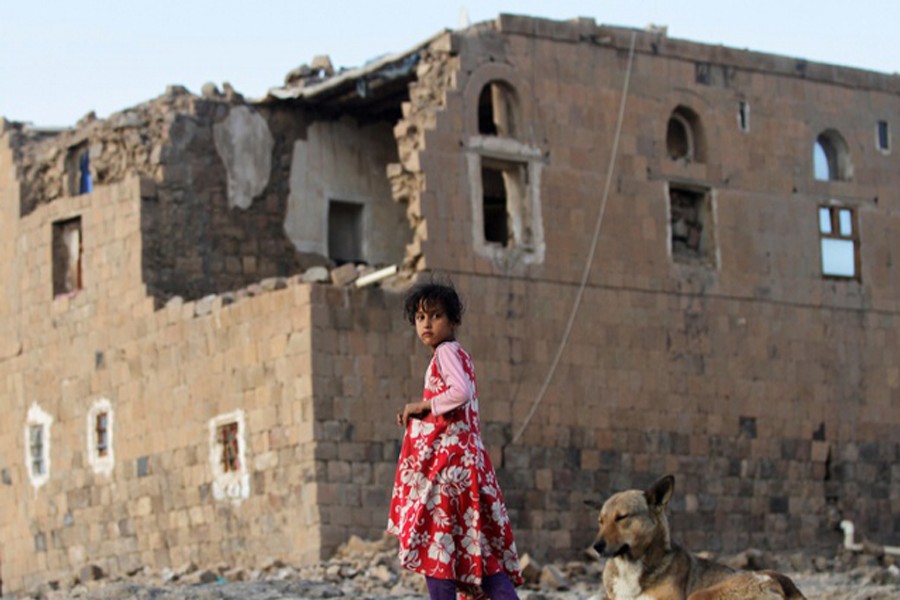The US Senate delivered a rare double rebuke to President Donald Trump on Saudi Arabia on Thursday, voting to end US military support for the war in Yemen and blame the Saudi crown prince for the murder of journalist Jamal Khashoggi.
The votes were largely symbolic because to become law the resolutions would have to pass the House of Representatives, whose Republican leaders have blocked any legislation intended to rebuke the Saudis.
In a historic move, Senators voted 56-41 to end US military support for the Saudi Arabian-led campaign in Yemen.
It was the first time either chamber of Congress had backed a resolution to withdraw US forces from a foreign military engagement under the War Powers Act. That law, passed in 1973 during the Vietnam War, limits the president's ability to commit US forces to potential hostilities without congressional approval.
Seven of Trump's fellow Republicans joined Senate Democrats to back the measure.
Immediately after the Yemen vote, the Senate unanimously passed a resolution blaming Saudi Crown Prince Mohammed bin Salman for Khashoggi's murder and insisting that Saudi Arabia hold accountable anyone responsible for his death.
"Unanimously, the United States Senate has said that Crown Prince Mohammed bin Salman is responsible for the murder of Jamal Khashoggi. That is a strong statement. I think it speaks to the values that we hold dear," Republican Senator Bob Corker, chairman of the Foreign Relations Committee, said.
Trump has said he wants Washington to stand by the Saudi government, and the prince. He promised to veto the war powers resolution. The White House declined comment on the joint resolution beyond pointing to his previous veto threat.
But backers of the resolutions, including some of Trump's fellow Republicans, promised to press ahead.
"What's next is to do everything possible to demand that the House of Representatives do what the members of the House want done, an opportunity to vote on this," Senator Bernie Sanders told Reuters.
Sanders, an independent who caucuses with Democrats, said he would bring the resolution up again in the new Congress, when Democrats will control the House of Representatives. The measure could pass the Senate again, given the bipartisan support it received on Thursday even though Trump's Republicans will have a larger majority next year.
"I think we're going to win in the Senate and I think we are going to do what the American people want, that is to end our participation in this horrific and destructive war," Sanders said.
There was no immediate word from House leadership on whether they would allow a vote on either of the resolutions.
Earlier on Thursday, Representative Steve Scalise, the No. 3 House Republican, declined to respond earlier when asked whether he would support a House vote on legislation seeking action against Saudi Arabia.
Pompeo and Mattis urged senators during a briefing last month to keep supporting the Saudi-led coalition.
In January, control of the House shifts to the Democrats, who won sweeping victories in November's mid-term elections. Democratic Leader Nancy Pelosi said her members supported congressional action.
"There certainly is an appetite in our caucus for that," Pelosi, who is expected to be the next House Speaker, told reporters.
Yemen's warring parties agreed on Thursday to cease fighting for the Houthi-held port city of Hodeidah and withdraw their troops, the first significant breakthrough for UN-led peace efforts in five years of conflict.
UN Secretary-General Antonio Guterres said a framework for political negotiations would be discussed at the next round of talks at the end of January between the Iranian-aligned Houthis and the Saudi-backed government of President Abd-Rabbu Mansour Hadi.
Western nations, some of which supply arms and intelligence to the Saudi-led coalition that intervened in Yemen in 2015, had pressed the two sides to agree confidence-building steps to pave the way for a wider truce and a political process to end the war, which has killed tens of thousands of people.
The conflict has pushed Yemen, the poorest country on the Arabian Peninsula, to the verge of famine.


